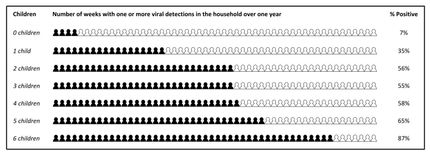Researchers study the human factor in spread of pandemic illness
Advertisement
Industrial engineers Sandra Garrett of Clemson University and Barrett Caldwell of Purdue University have proposed a new system to warn of an impending pandemic by monitoring signals in human behavior. The system could result in using a simple icon on a television screen to warn of future phases of an outbreak of an illness such as the flu.
Researchers agree it is extremely difficult to identify a pandemic event before it is under way and spreading from person to person, yet the timeliness of this early detection is critical for an effective response and disaster-mitigation strategy. History and computer-generated simulations show that the speed in which a response strategy is initiated, even more than the specific strategy itself, will have the largest influence in reducing the overall impact of a pandemic. Given the importance of rapid response, identifying the specific event phases and the triggers that indicate a need for action is essential.
"We know that delays in identification are critical," Garrett said. "Once any significant number of cases are identified, especially in high-transit areas, the pandemic spread is virtually impossible to control. We have proposed a system that monitors what humans are doing leading up to a pandemic to increase the likelihood of early detection."
Garrett said the system would monitor such activities as an increase in flu-related medicine purchases or a spike in Internet use for certain types of flu-related information. These early indicators are important to notice since the spread of influenza can occur before someone begins to show symptoms of being sick and before they seek medical attention. Since a pandemic does not occur at a single point in time, but rather evolves, it is often difficult to detect an outbreak from physician or local health-department reports of an increase in flu cases.
"Understanding these phases might be a way to overcome a fundamental hurdle in controlling a pandemic," said Caldwell. "Conventional approaches require public-health officials to know when certain events leading to pandemic begin. The problem is it's often too late to do much about it."
The researchers say planning for an illness can start at an earlier phase so that policymakers, government officials and the public can react sooner to control it. They envision a system that uses icons on television screens similar to those used for weather advisories warning about the phases of the illness and appropriate public responses.
























































